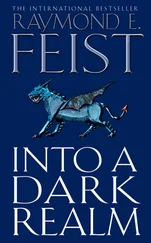Renata Adler - Pitch Dark
Здесь есть возможность читать онлайн «Renata Adler - Pitch Dark» весь текст электронной книги совершенно бесплатно (целиком полную версию без сокращений). В некоторых случаях можно слушать аудио, скачать через торрент в формате fb2 и присутствует краткое содержание. Год выпуска: 2013, Издательство: NYRB Classics, Жанр: Современная проза, на английском языке. Описание произведения, (предисловие) а так же отзывы посетителей доступны на портале библиотеки ЛибКат.
- Название:Pitch Dark
- Автор:
- Издательство:NYRB Classics
- Жанр:
- Год:2013
- ISBN:нет данных
- Рейтинг книги:3 / 5. Голосов: 1
-
Избранное:Добавить в избранное
- Отзывы:
-
Ваша оценка:
- 60
- 1
- 2
- 3
- 4
- 5
Pitch Dark: краткое содержание, описание и аннотация
Предлагаем к чтению аннотацию, описание, краткое содержание или предисловие (зависит от того, что написал сам автор книги «Pitch Dark»). Если вы не нашли необходимую информацию о книге — напишите в комментариях, мы постараемся отыскать её.
Pitch Dark Composed in the style of Renata Adler’s celebrated novel
and displaying her keen journalist’s eye and mastery of language, both simple and sublime,
is a bold and astonishing work of art.
Pitch Dark — читать онлайн бесплатно полную книгу (весь текст) целиком
Ниже представлен текст книги, разбитый по страницам. Система сохранения места последней прочитанной страницы, позволяет с удобством читать онлайн бесплатно книгу «Pitch Dark», без необходимости каждый раз заново искать на чём Вы остановились. Поставьте закладку, и сможете в любой момент перейти на страницу, на которой закончили чтение.
Интервал:
Закладка:
In winter, not wanting to slide the large barn doors open, I used to enter and leave through the back door of the little stove room. When I left, early the next morning, the creature was not there. I was not sure what he was. I was still not entirely sure I had seen him. I did not turn off the lightbulb. I spent most of that day in the city. When I came home, long after dark, it was snowing, and he was there — sitting, this time, on the stove, slouched and leaning against the stovepipe, head lowered, great, dark-circled eyes blinking, swaying a little, I thought, like a drunk. He left through his crawl space almost as soon as he saw me. But because, on every subsequent evening, he stayed longer and left less abruptly; because he returned most nights, and slouched, on the stove, leaning against the stovepipe, all night, until morning; because he sometimes touched, though rarely, the water I left in a dish beside the stove for him; because he was, after all, a wild thing, growing ever more docile; we arrived at our misunderstanding. I thought he was growing to trust me, when in fact he was dying. So are we all, of course. But we do not normally mistake progressions of weakness, the loss of the simple capacity to escape, for the onset of love.
And the virtuoso, and the pachysandra, and the awful night of Eva dancing?
Not right here, I think. Not now.
I thought he was growing to trust me, when in fact he was dying. I had hardly an intimation of this until one night when, as usual by then, the light in the stove room was on, the door was open, and I again sat in that armchair, reading. About the third time I looked up, the animal, which had until then slouched, staring, blinking, against the stovepipe, was evidently trying to climb from the stove down to the floor. I thought at first he was trying to reach the water dish, or that, startled by my looking up, he was going to leave through the gap between the insulation and the wall. But, as he stayed there, head and front paws reaching, slowly, tentatively, toward the floor, his haunches, most of his weight still on the stove; as it seemed that gravity had somehow reversed for him, and that the simple act of getting down required all his strength, had become a slope too steep for him to climb; I began to walk toward him, intending, at that moment, just to lift him to the floor. He looked at me. I reconsidered. I moved quietly to the phone book and the phone. When I had finished dialing, a very young voice answered. “May I speak to Doctor Rubin?” I asked, meaning Ed, who had treated all our dogs and cats since I was in kindergarten; Ed, who had put his hand to the side of his face and said, “Oy vey geschrien, oy vey geschrien,” when my mother brought in Shaggy, the wonderful mongrel hit by a speeding pickup; Ed Rubin, who had let us stay with Bayard, our always slow-witted and timorous but now senile Great Dane, while he gave him the shot that put him gently away; Ed Rubin, whom I’d last seen with his wife, Dottie, who always used to sing so lustily in the choir, not just of the local synagogue but of various other congregations, blinking, as the lights went up, at an improbable French movie in New York. “This is Doctor Rubin,” the young voice replied.
“Wayne, this is Kate Ennis,” I said. I had read to Wayne Rubin when he was five. “I’m living in a barn on King Street. There’s a raccoon here, and I think he’s sick. Could you come? He’s just trying to lower himself from my stove onto the floor, and he can’t seem to make it. I think I’m going to try to lift him down.”
“Don’t touch him,” Wayne said. “Don’t go near him. There’ve been a lot of sick raccoons around since fall. It’s distemper.”
“Well, what shall I do, then?”
“Don’t touch him, Kate. Don’t go near him. Just stay out of his reach until he dies. Where did you say he was?”
“He’s here in the barn, with me. On the stove. He’s been warming himself here for days. Would you just come and have a look at him?”
“I can’t. Not tonight, Kate. But here’s what you do. Call the wildlife commissioner. He’ll help you out.”
“Will he come?”
“Yes, he will. That’s his job. Look him up, in the phone book. Under Township of Red Hill. Wildlife Commissioner.”
“Thanks. Wayne, how’s your father?”
“He’s fine. He and Mom are in Fort Lauderdale till March.”
“I see. Well, thanks.”
“Right. And, Kate, don’t go near an animal with distemper. Or any sick, undomesticated animal. You know that.”
I did know.
About an hour after my call, an old battered panel truck came into the driveway. I was waiting outside by then, partly from impatience, partly because the barn was not easy to find, partly to stop standing and watching the by now obviously feverish and exhausted creature, which had somehow raised its whole body onto the stove again, and sat up, precariously, leaning against the stovepipe, blinking. The night was very cold, windy. A grizzled old man, in a patched woolen jacket and an old cap with earmuffs, climbed slowly out of the truck. Out of the passenger side, equally slowly, similarly dressed, climbed a boy of about ten. I said, Hello, I’m Kate Ennis. “Well, ma’am, I’m the wildlife commissioner. And this is my grandson.” I mentioned the lateness of the hour. “That’s all right, ma’am. The family was watching the TV, but this is my job. And the boy likes to come. We’ll just take care of this for you real nice.” The man fumbled for a time in the rear of the truck, then brought out a large dented cage, made of barbed wire and wood, and a long wooden pole, with a loop of leather at one end. He handed the cage to the boy, kept the pole for himself.
“Well, ma’am,” he said, “where is he?”
“He’s inside. On the stove. I was wondering. What are you going to do with him exactly?” Something flickered in the man’s face: one of those. For the first time, he looked directly at me, from head to foot, then, for a moment, in the eyes.
“Why, ma’am, we’ll just take care of him for you,” he said.
The boy was already walking toward the barn. I opened the door for them. We approached the stove. The boy moved forward, crouched, then made a purring sound, and slid open a panel of the cage. The raccoon just sat there, shivered, stared.
“See his hindquarters,” the boy said. “Paralyzed.”
The old man, standing in the doorway, said nothing, wheezed, then, not at all quickly, moved his pole, thrust the loop over the animal’s head, and, lifting him by the neck, let him dangle a moment, then dropped him into the boy’s cage. The boy slammed the panel shut. The raccoon turned around, stared out. “He’s very sick, ma’am, didn’t even fight me. Usually they do,” the old man said. The boy stood, blank-faced, purring. “Give him penicillin. That’s the best thing for him,” the man continued.
“Look,” I said. “I know he’s dying. What I meant was, do you shoot him, or give him gas, or just leave him alone and let him die?”
“Oh, no, ma’am,” he said, looking me up and down again, this time more slowly. “Penicillin. Then I’ll see if he’ll just eat for me. If I can just get them to eat for me, I know I can fix them. But don’t you worry. He’ll die humanely.” He laughed. The boy stopped purring. Holding the cage, he started toward the truck.
Outside, I asked the old man how much I owed him.
“Well, ma’am, I work for the town,” he said. “Whatever you think is appropriate.” He put the bill in the pocket of his shirt, inside the jacket. The raccoon looked out through his cage, in the back of the truck, beside some rags, an inner tube, some lengths of pipe. The boy sat quietly in his seat. The old man got in, and they drove away.
God knows what they did with him. Stoned him, probably. Unless raccoon pelts had value, more value than acts of cruelty, in their lives, in which case they would probably waste a single bullet on him, or let him starve. Maybe this isn’t about the wildlife commissioner. About betrayal, rather, on my part. Or on the animal’s, reproach. He did trust me, after all, in some sense, or was entrusted to me. We traveled a bit along life’s road together; at the time he came to visit, I even, as I rarely do, had my own few days of fever. But in making more frightening and miserable, probably, the last moments of this raccoon, well, I made an error. I should have let him die, of course, upon the stove. A mistake, a series of errors, first of love, then of officiousness, finally of language. I should have known, I ought to have known, but how could I? what is meant by, what are the official duties of the wildlife commissioner in this town.
Читать дальшеИнтервал:
Закладка:
Похожие книги на «Pitch Dark»
Представляем Вашему вниманию похожие книги на «Pitch Dark» списком для выбора. Мы отобрали схожую по названию и смыслу литературу в надежде предоставить читателям больше вариантов отыскать новые, интересные, ещё непрочитанные произведения.
Обсуждение, отзывы о книге «Pitch Dark» и просто собственные мнения читателей. Оставьте ваши комментарии, напишите, что Вы думаете о произведении, его смысле или главных героях. Укажите что конкретно понравилось, а что нет, и почему Вы так считаете.












